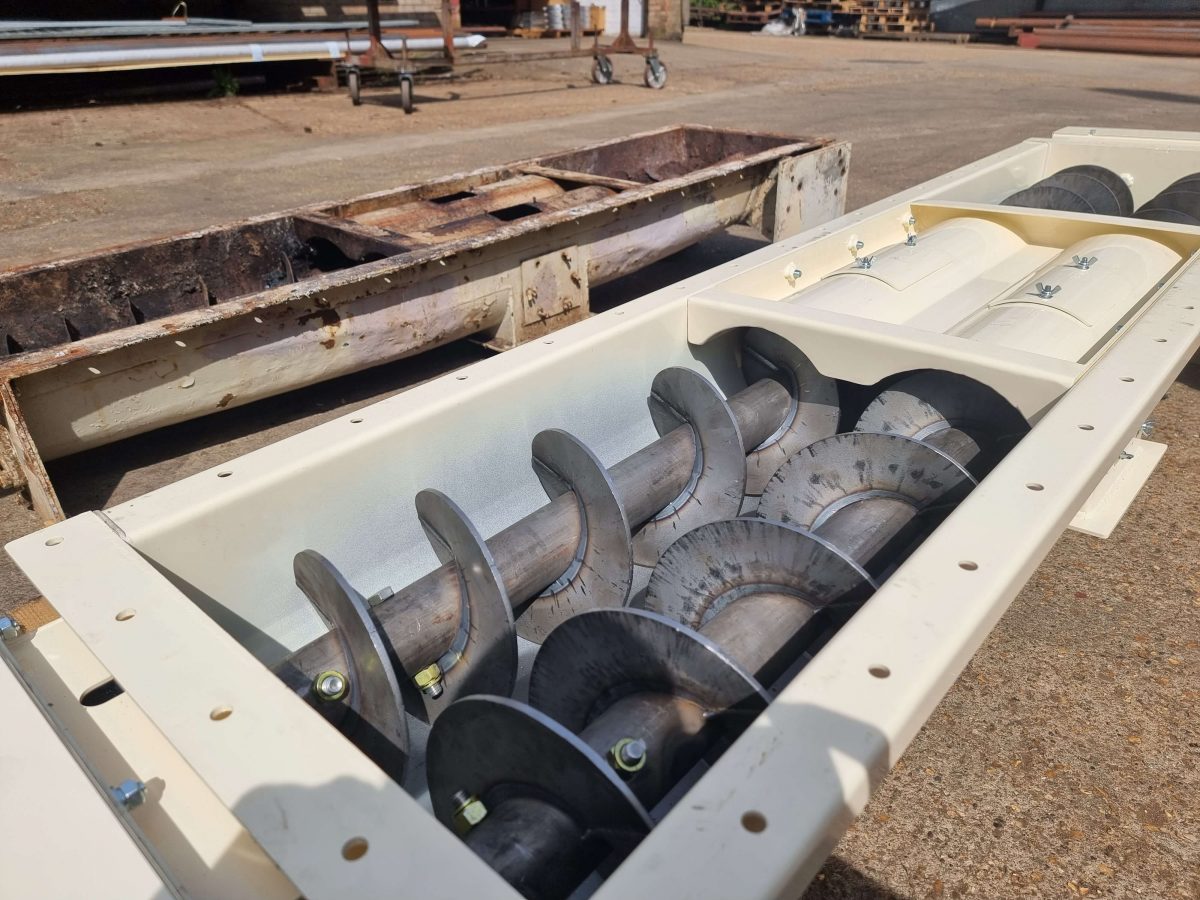In pharmaceutical manufacturing, conveyor systems are essential.
You’ll need to handle a mass of challenging materials, including active ingredients, and complete several pharmaceutical processes, including mixing, blending and drying.
Screw conveyors are a popular choice for pharmaceutical processes. Screw conveyors are cost-effective, efficient, and can be modified to suit the needs of an individual business. There’s also an array of other systems that you can use to streamline your processes. So, how exactly do you choose a suitable pharmaceutical conveyor?
Let’s take a closer look at the most common things you need to consider when buying a new conveyor for your industry.
Sanitation and Safety
The safety and sanitation of your work environment and the end product should be your top priority. Therefore, you’ll need to keep this at the forefront of your mind when buying a pharmaceutical conveyor.
The suitable conveyor should be able to withstand regular maintenance and make this process as efficient as possible. You’ll also need to consider factors like your inspection and tracking needs, the conveyor system requirements and their compliance with health and safety standards, and if your conveyor needs to be compatible with external equipment like x-ray machinery or metal detectors.
Before purchasing a conveyor, talk with a manufacturer in detail about conveyor system requirements and how these can help you to maintain compliance with health and safety standards. You should also make sure you opt for conveyor materials that can be sanitised easily, like aluminium, most commonly used in screw conveyors.
Speed and Size
How heavy are the products you’re conveying? Are they small or large in width?
You’ll need to keep these questions in mind when you talk to a manufacturer. The size of the materials you’re handling can determine the speed and size of the conveyor you’ll need.
You may need a conveyor that can still run at high speeds, but that can offer you conveyors, with smaller widths. Again, a reputable manufacturer can help you determine the correct specifications for your processes, including whether or not you’ll need features like bi flow conveyors or flexible layouts that differ from the standard conveyors seen in other industries.
Transfer
One of the most important processes you’ll perform is the transference of materials. You’ll need to regularly convey active pharmaceutical ingredients from one area to another to perform tasks like packing and bottling.
You’ll likely be dealing with much smaller materials than other industries, such as pill bottles, which will usually require smaller conveyors and rollers. If your conveyors aren’t the right size, you risk damaging products and ingredients when transferring them from one conveyor to the other.
You’ll need to discuss your requirement for smaller conveyors with a manufacturer who can produce the proper specifications to suit your product size and storage space to reduce the risk of damage during transfer. In addition, your manufacturer may recommend innovative solutions like waterfall transfer or side transfer to make your operations as safe and efficient as possible.
Conveyor Belt
The right belt is crucial for performing tasks like labelling and conveying. Most belts are designed to convey heavier materials, which naturally encourage the belt to fall flat and roll correctly. However, lightweight materials like those seen in the pharmaceutical industry are not always capable of doing this.
To ensure your belt runs correctly, your manufacturer may suggest using smaller bearings and rollings for your processes so you can ensure the proper spacing and orientation is achieved. They may also encourage you to explore other approaches like vacuum belting to help you hold down more lightweight items and keep them secure during transference.
Conveyors are a crucial part of your production processes, and you’ll have many variables to consider when choosing the one for your operations. Your conveyors will likely require some adaptation and customisation to make them more suitable for transferring lighter and more fragile materials.
Make sure you choose to work with a manufacturer with extensive experience in the pharmaceutical industry and who can advise you of the appropriate adaptations to make to your conveyor. Your health and safety and the efficiency of your processing operations should be their top priority.









